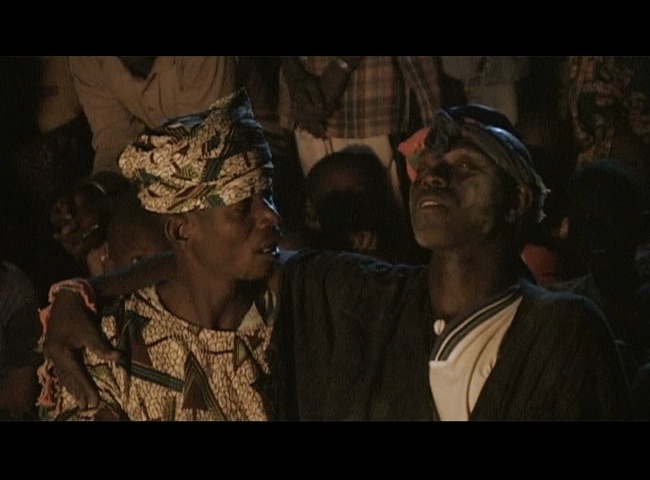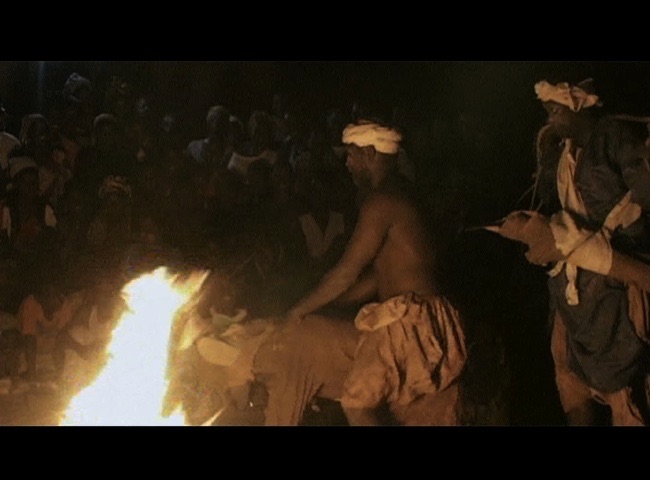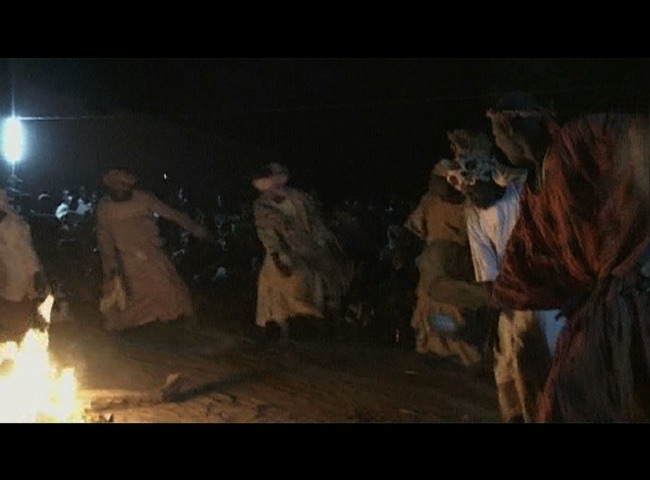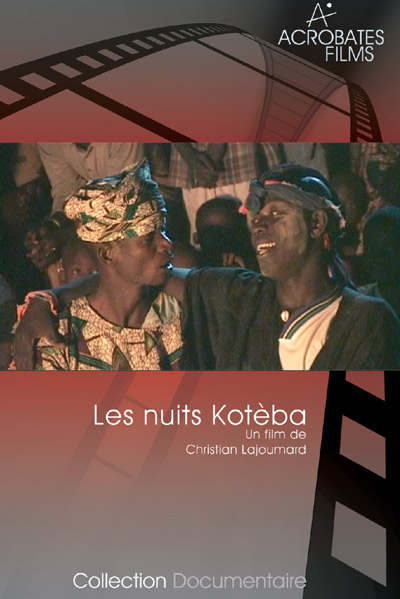Les Nuits Kotèba
-
Réalisé par Christian Lajoumard • Écrit par Christian Lajoumard
-
France • 2009 • 52 minutes • DV Cam • Couleur
- Réalisation :
Christian Lajoumard - Écriture :
Christian Lajoumard - Image :
Christian Lajoumard - Son :
Abdou Salam Bäh, Bakari Sangaré - Montage :
Jean-Robert Thomann - Voix off :
Christian Lajoumard - Mixage :
Raoul Frühauf - Étalonnage :
Arnaud Sentenac
- Production (personne) :
Claire-Agnès Lajoumard - Production (structure) :
Acrobates Films - Diffuseur :
France Ô - Participation :
CNC - Ayant droit :
Acrobates Films
- N° ISAN :
non renseigné
Résumé
Le Kotèba est une forme de satire sociale jouée sur le mode burlesque dans les villages de l'aire mandingue au Mali. Une fois par an, les vices de la cité sont mis en spectacle et moqués sur la place publique.
Cette tradition séculaire existe toujours dans les campagnes bien qu'elle ait tendance à s'étioler en raison de la perte de certaines valeurs.
Depuis les années 1980 le Kotèba s'est déplacé dans les villes et un mouvement de comédiens l'a transposé dans une problématique urbaine. L'incroyable popularité de ce mouvement a eu une grande influence sur la politique du Mali.
D'autres adaptations ont vu le jour dans les trente dernières années : le Kotèba thérapeutique, le Kotèba télévisé, la publicité Kotèba...
De nouveaux auteurs et metteurs en scène ont aussi modernisé le genre, en lui donnant un cadre plus écrit, tout en conservant les caractéristiques du Kotèba originel : satire sociale, autodérision, burlesque.
Les Nuits Kotèba présente les différents aspects de ce mode d'expression typiquement africain et, par bien des côtés, terriblement universels
Kotèba is a kind of social satire, performed in a burlesque style in the villages of the Mandingo area in Mali. Once a year, the defects of public life are highlighted in a show, and made fun of in the open. This ancient tradition is still kept in the countryside, although it has started to go into a decline, owing to the fact that some of its values have been lost. In the 80ies, Kotèba reached the cities and a movement of actors has adapted it to urban issues.
The movement has become incredibly popular and has had a tremendous influence on political life in Mali.In the course of the past thirty years, Koteba has also been adapted for other purposes: health Kotèba, TV Kotèba, advertising Kotèba...New playwrights and directors have modernized the genre by creating written texts, while keeping what is so characteristic in original Kotèba: social satire, self-humor, and burlesque.Kotèba Nights shows the different aspects of this means of expression so typically African and, for some of these aspects, so terribly universal
Mot(s)-clé(s) thématique(s)
Comment avoir accès au film ?







